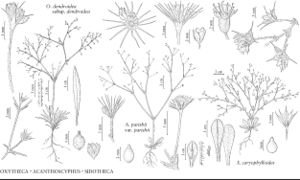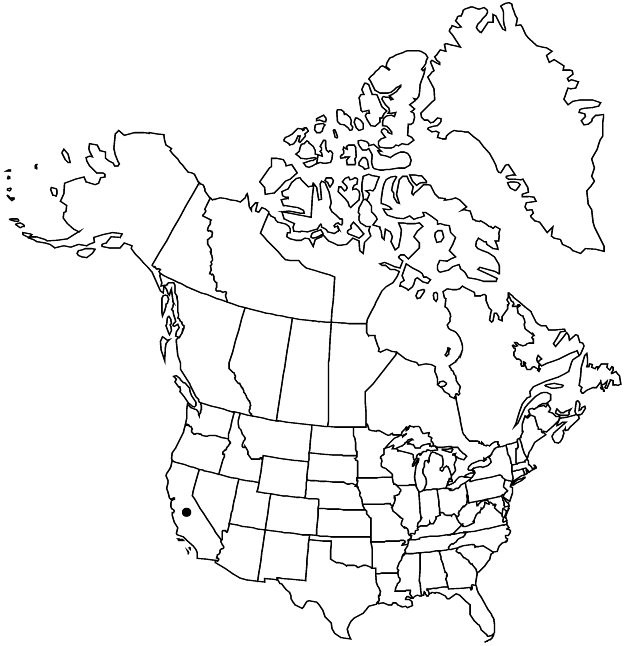familyPolygonaceae
subfamilyPolygonaceae subfam. Eriogonoideae
genusAcanthoscyphus
speciesAcanthoscyphus parishii
Difference between revisions of "Acanthoscyphus parishii var. parishii"
Common names: Parish’s flowery puncturebract
IllustratedEndemic
Synonyms: Eriogonum abramsii subsp. acanthoscyphus S. Stokes
Treatment appears in FNA Volume 5. Treatment on page 438.
FNA>Volume Importer |
imported>Volume Importer |
||
| (One intermediate revision by one other user not shown) | |||
| Line 4: | Line 4: | ||
|publications= | |publications= | ||
|common_names=Parish’s flowery puncturebract | |common_names=Parish’s flowery puncturebract | ||
| + | |special_status={{Treatment/ID/Special_status | ||
| + | |code=F | ||
| + | |label=Illustrated | ||
| + | }}{{Treatment/ID/Special_status | ||
| + | |code=E | ||
| + | |label=Endemic | ||
| + | }} | ||
|basionyms= | |basionyms= | ||
|synonyms={{Treatment/ID/Synonym | |synonyms={{Treatment/ID/Synonym | ||
| Line 46: | Line 53: | ||
|publication title= | |publication title= | ||
|publication year= | |publication year= | ||
| − | |special status= | + | |special status=Illustrated;Endemic |
| − | |source xml=https:// | + | |source xml=https://bitbucket.org/aafc-mbb/fna-data-curation/src/2e0870ddd59836b60bcf96646a41e87ea5a5943a/coarse_grained_fna_xml/V5/V5_913.xml |
|subfamily=Polygonaceae subfam. Eriogonoideae | |subfamily=Polygonaceae subfam. Eriogonoideae | ||
|genus=Acanthoscyphus | |genus=Acanthoscyphus | ||
Latest revision as of 22:15, 5 November 2020
Plants erect, 1–6 dm. Stems usually stout, (1–)5–15 cm. Leaf blades 1–7 cm. Inflorescences: bracts (2–)3, triangular, awns 0.2–0.5 mm. Peduncles (1–)2–5(–7.5) cm. Involucres: awns (10–)13–30(–36), ivory colored, (3–)4–5 mm. 2n = 40.
Phenology: Flowering Jun–Oct.
Habitat: Sandy to gravelly flats and slopes, chaparral communities, montane conifer woodlands
Elevation: 1900-2600 m
Discussion
Variety parishii occurs from the Pine Mountains, Ventura County, eastward through the San Gabriel Mountains to the central San Bernardino Mountains of San Bernardino County. It is the most common expression of the species.
Selected References
None.
Lower Taxa
None.

